Mice can be a huge problem, coming into your house and making a mess. But how do they get in? And once they’re in, how do you get rid of them? In this article, we’ll answer those questions and more.
We’ll provide tips on how to keep mice out of your house, and what to do if they manage to sneak their way in anyway. So read on for all you need to know about How Do Mice Get In Your House!
How Do Mice Get in Your House?
Mice also like to take shelter near food sources such as pantries, garbage cans, and pet food containers. If you’re not careful, they could enter your house through these areas as well.
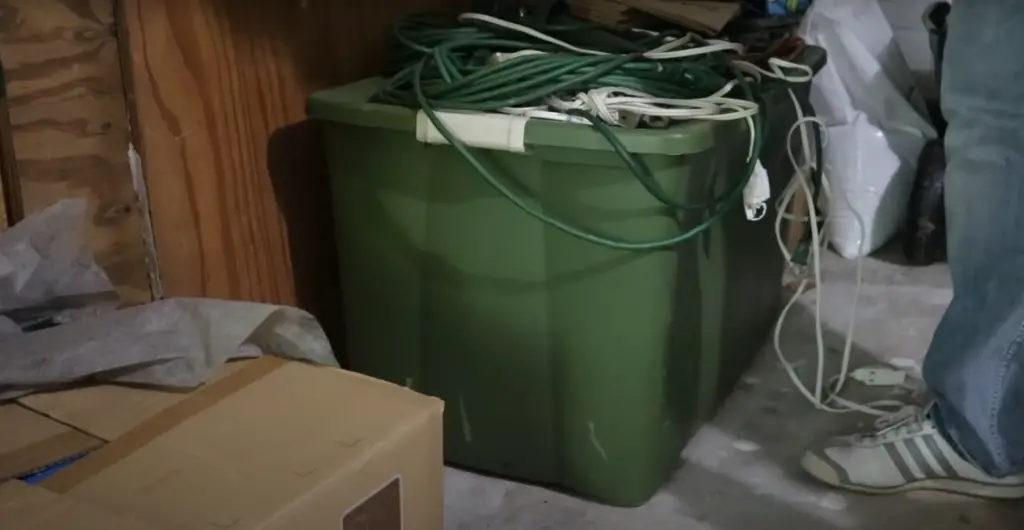
How to Keep Mice Out of Your House
The best way to keep mice out of your home is to make sure they cannot get in. Check around your windows and doors for cracks. Use caulk to fill them in. Check your walls, foundation, and plumbing entry points for holes or gaps and fill them in too.
Another great way to keep mice away from your home is to remove any potential food sources that might be attracting them.
Make sure you store all food items securely in sealed containers, and keep your garbage cans covered. Also, be sure to clean up any crumbs that may have been spilled on the floor.
Finally, it’s a good idea to set up mouse traps around the exterior of your home. This will help catch any mice who might try to get in before they can enter your house. [1]
How Mice Tend To Enter Homes?
Mice will usually enter homes through small openings, such as cracks around windows and doors, plumbing entry points, holes in walls, and gaps in the foundation.
They also like to take shelter near food sources such as pantries, garbage cans and pet food containers. If these areas are not kept secure or well-maintained, mice could easily get in.
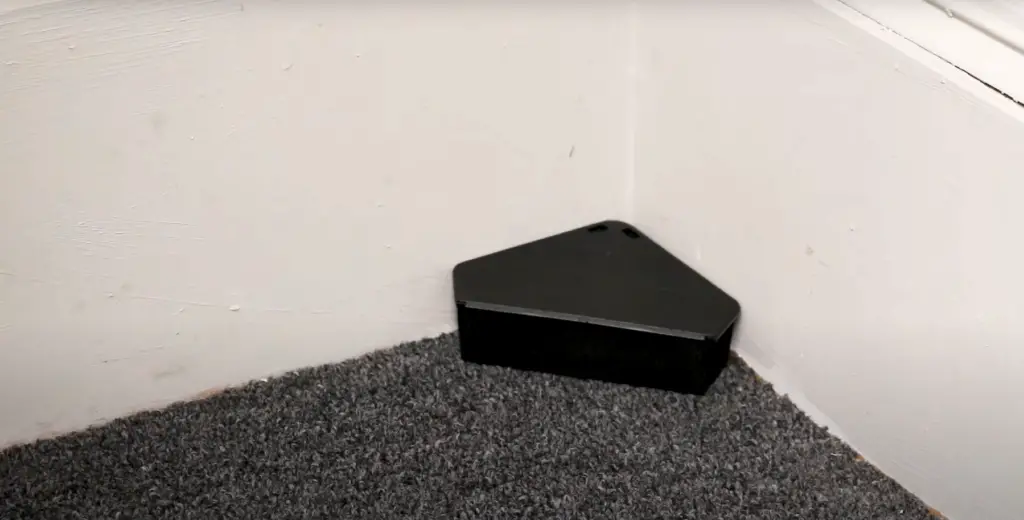
Mice can enter homes through ducts, chimneys and vents. They like to take shelter in warm spaces that offer easy access to food sources. If your home has any of these entry points, make sure they are covered and sealed off so the mice cannot come in.
Dangers of a Mouse Infestation
Therefore, it’s important to take steps to prevent mice from entering your home in the first place.
Signs of a Mouse in the House
There are some things that you can look for to see if you have a mouse in your house.
- Mouse droppings are small poop pellets and can be found around the house, usually near food sources or nesting areas.
- You may also hear scratching and squeaking noises coming from walls or other enclosed spaces.
- Finally, you may notice gnaw marks on furniture or food containers, as well as an unpleasant musty smell.
Mouse Droppings
Mouse droppings are small, dark-coloured pellets that can be found around the house, especially near food sources or nesting areas.
If you find mouse droppings in your home, it’s important to take immediate action as they can spread dangerous diseases.
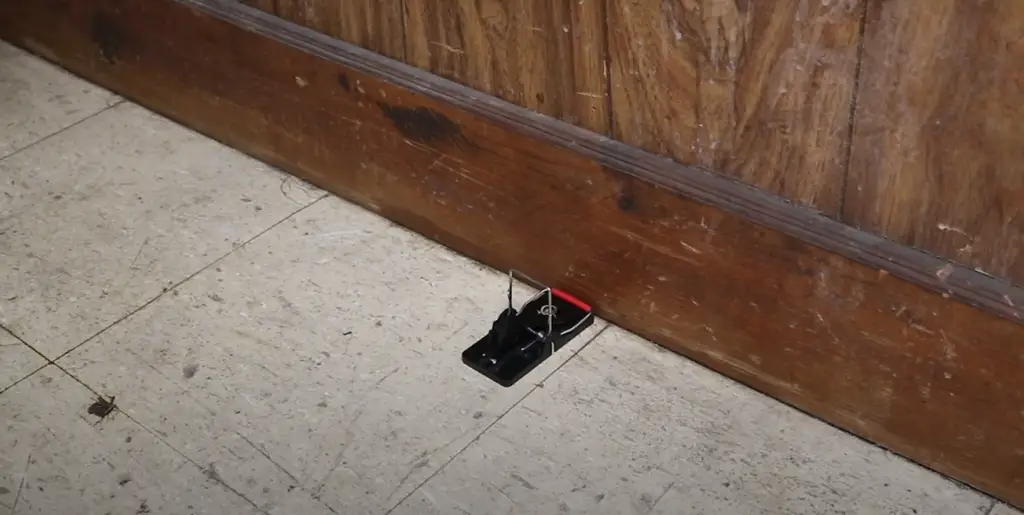
Scratching Noises at Night
If you hear scratching or squeaking noises coming from walls, ceilings or other enclosed spaces at night, it’s likely that a mouse has entered your home. Mice are nocturnal and usually come out to search for food after dark.
Gnaw Marks
Mice have strong front teeth used for gnawing through walls, furniture, and food containers. If you notice any gnaw marks in your home, it’s a good sign that there is a mouse living there.
Musty Smell
Mice have an unpleasant musty smell that can often be detected when they are present in the house. The smell will become stronger over time as the mouse population grows.
Strong, Unusual Smell
Mice can also produce a strong, unusual smell when they feel threatened or frightened. This musky odour will usually be accompanied by squeaking and scratching noises as the mouse tries to escape.
Small Nests
Mice like to build nests in dark, enclosed spaces. If you see any small piles of material such as shredded paper or fabric, it’s likely that a mouse has created a nest there.
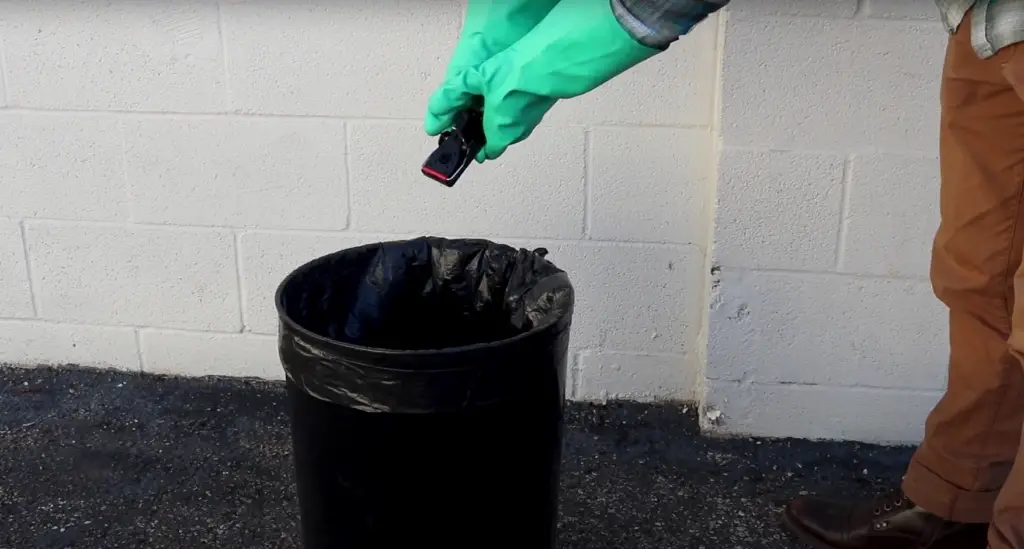
Mouse Sighting
If you actually see a mouse running around in your home, it’s definitely time to take action. Mice breed quickly and can cause serious damage to your property if they are not dealt with promptly. [1]
How to Prevent Mice in the Winter?
Winter is an especially dangerous time for mice infestations. That’s because they are looking for warm, cosy places to nest in cold weather. Here are some tips to help you prevent mice from entering your home during the winter months:
- Seal all cracks and openings around windows, doors, pipes and foundations with caulk or weather stripping.
- Keep food sources secure and clean up any crumbs or food scraps immediately.
- Place mouse traps around the house in areas where mice are likely to enter.
- Store firewood at least 20 feet away from your home.
- Use steel wool to plug any holes that mice can use as entry points.
- Make sure your chimney and vents are sealed off.
- Consider using a natural repellent such as peppermint oil or cayenne pepper around the perimeter of your house.
Keep All Food Including Pet Food Covered
Mice are always on the lookout for an easy food source.
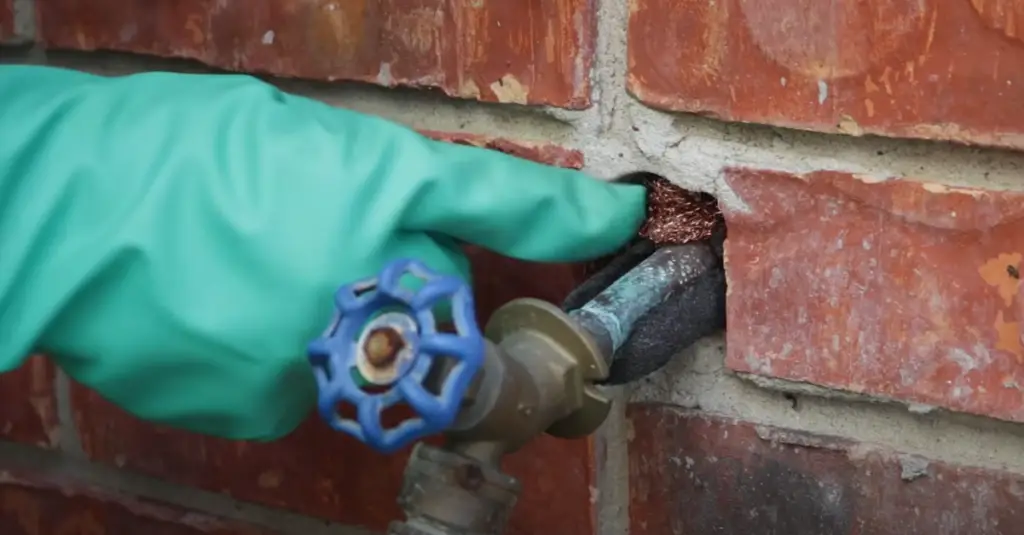
Get Rid of Clutter
Mice love clutter because it provides them with plenty of places to hide. Get rid of any piles of clothes, boxes, or other items that may be providing a cozy home for mice.
Seal Potential Entry Points
Mice can fit through tiny spaces, so make sure you fill in all of the spaces where they could come in. This includes cracks around windows and doors, pipes, foundations, and air vents.
Call The Professionals
If all else fails, your best bet is to call in the professionals. A qualified pest control specialist can help you identify and eliminate any mice that have made their way into your home.
With these tips, you can make sure your home stays safe from mice all winter long! Remember to seal off any potential entry points, keep food sources secure, and get rid of clutter.
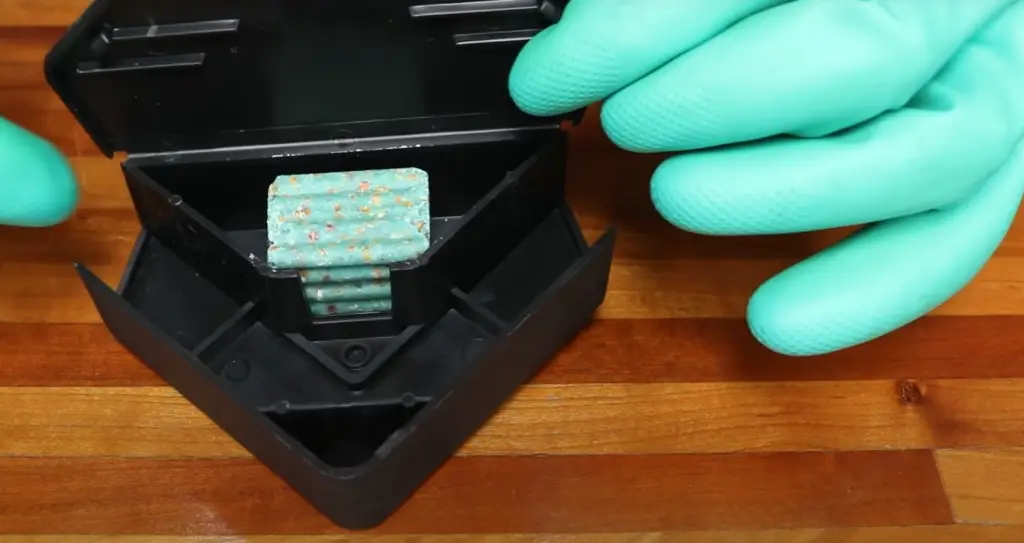
If you do find evidence of a mouse infestation, don’t hesitate to call a professional pest control specialist. It’s important to act quickly and take the necessary steps to ensure that mice don’t have a chance to nest in your home.
FAQ
Why do I suddenly have mice in my house?
Mice are always on the lookout for an easy food source, and they’ll often find their way into your home in search of food. If you have recently experienced a change in weather or season, it is possible that mice are entering your house seeking shelter from the cold.
What do I do if I have a mouse in my house?
If you see a mouse running around your house, you need to act fast. First, seal off any places where they could come in. Then get rid of anything that might be attracting them, like food.
You can also put traps around your house to catch the mice that are already there. If the problem does not go away, you might need to hire someone who knows how to get rid of mice for good.
How can I prevent mice from entering my house in the future?
Here are some ways to keep mice from coming into your house:
- Seal off any potential entry points
- Keep food sources secure
- Place mouse traps around the house
- Store firewood at least 20 feet away from your home
- Use steel wool to plug any holes that mice can use as entry points
- You can also use a natural repellent such as peppermint oil or cayenne pepper around the perimeter of your house.
What are the most common ways mice get in your house?
Mice get into houses through tiny cracks and spaces around windows, doors, pipes, and foundations. They can even squeeze into really small places. So it is important to make sure all of these areas are sealed shut. Additionally, if you have a chimney or vents that aren’t sealed, mice can use these to get inside your home.
If you have any other questions about how mice get in your house or need help getting rid of them, ask a professional pest control specialist.
With their expertise and knowledge, they can help identify and eliminate any potential mouse infestations.
How do you find where mice are getting into your house?
The best way to find where mice are getting into your house is to look for signs of them. Mice leave behind droppings, gnaw marks, and tracks that you can use to identify their entry points.
Additionally, you can set up traps around the perimeter of your home to help you track them down.
Once you’ve identified where they are getting in, make sure to seal off any potential entry points. This is key to keeping mice out of your house in the future. Additionally, don’t be afraid to call a professional if you need help getting rid of any existing infestations.
From knowing what a mouse looks like to finding out where it’s entering your home, this guide has everything you need to know about how mice get in your house. Remember to seal off potential entry points, keep food sources secure and get rid of clutter to avoid inviting them in.
If you do find evidence of a mouse infestation, don’t hesitate to call a professional pest control specialist for help.
Does one mouse mean an infestation?
If you see one mouse, it does not mean there are a lot of them. But it does mean you need to act fast and look for other signs of mice, like droppings or teeth marks. If you think there might be a lot of mice or if you can’t get rid of them, call a professional pest control specialist. They can help you get rid of the mice for good.
How long do mice stay in your house?
Mice can stay in your house for up to three months. It all depends on how comfortable they are and if there is a food source nearby. If you don’t get rid of the mice or seal off any potential entry points, they may even stay longer than that.
To make sure they don’t stick around, take the necessary steps to prevent them from coming in and get rid of any existing mice.
Do mice go in beds?
They are also awake at night, so they might come into your bed when you are sleeping.
To stop this from happening, keep all food put away, block any holes that they could come in through, and set up traps around your house. If you think there might be mice in your house, call a professional to help you get rid of them.
Why is it important to know how mice get in your house?
Mice can carry diseases and they can damage your home if they come inside. To prevent them from coming in, seal all of the places they could come in and keep food put away.
If you see signs that there are mice in your house, call someone who can help get rid of them. Taking these measures now will save you from having a bigger problem later on.
Does temperature affect mice?
Yes, temperature does affect mice. Mice are most active in temperatures between 70-80°F, so if your home is cooler, they may not be as active. Additionally, if the temperature drops below 50°F for an extended period of time, mice may enter your home looking for a warm place to stay.
Does cleanliness affect mice?
Cleanliness can affect mice because they are attracted to food and clutter. If you keep your home clean, there will be fewer food sources for them to eat and less places for them to hide.
Additionally, keeping your home free of clutter makes it harder for mice to find entry points into your house. To keep mice away, make sure you are cleaning your home regularly and storing food properly.
Do mice like cold weather?
No, mice do not like cold weather. They prefer temperatures between 70-80°F and will often enter a home if the temperature drops below 50°F for an extended period of time.
To keep them out of your house during the winter months, make sure to seal all potential entry points and store food securely.
Does noise scare away mice?
Noise might scare away mice at first, but it will not work for long. Mice will get used to the noise and might even start using it as a warning signal when they feel like something is wrong.
To get rid of mice, you should try sealing off any places they can enter your home, keeping food in safe places, and asking for help from someone who knows what to do.
Can cats keep mice away?
Cats might be able to help keep mice away, but they can’t get rid of them all by themselves. Even if a cat chases away some mice or kills one or two of them, there could still be more hiding in your home.
The best way to get rid of mice is to make sure they can’t get into your home in the first place by sealing off all possible entry points.
You should also keep food put away so that they don’t have anything to eat. If you can’t get rid of the mice on your own, you should call a professional pest control specialist.
How do you prevent mice from coming into your house?
Mice can come into your house through small spaces. To stop them, look for cracks or gaps around windows, doors, and other places where they might enter.
When should you call a professional?
If you think there are mice in your home, it is best to call a professional right away. A pest control specialist has the knowledge and tools needed to get rid of the mice permanently.
They can inspect your home, provide advice on how to keep mice out, and take care of any infestations. Don’t wait too long to call a professional, as mice can cause extensive damage and spread diseases. Taking action now can save you from more trouble in the future.
Useful Video: How to Get Rid of House Mice (4 Easy Steps)
Conclusion
Mice are often looking for the same thing you are in the winter: a warm place to call home. While it may be hard to prevent them from getting in, there are some things you can do to make your home less attractive to them.
Be sure to seal up any cracks or holes on the outside of your house, and keep food stored away so they can’t smell it. With a little effort, you can make your home mouse-free this winter.
References
- https://www.brodybrotherspestcontrol.com/blog/mice-home-winter/





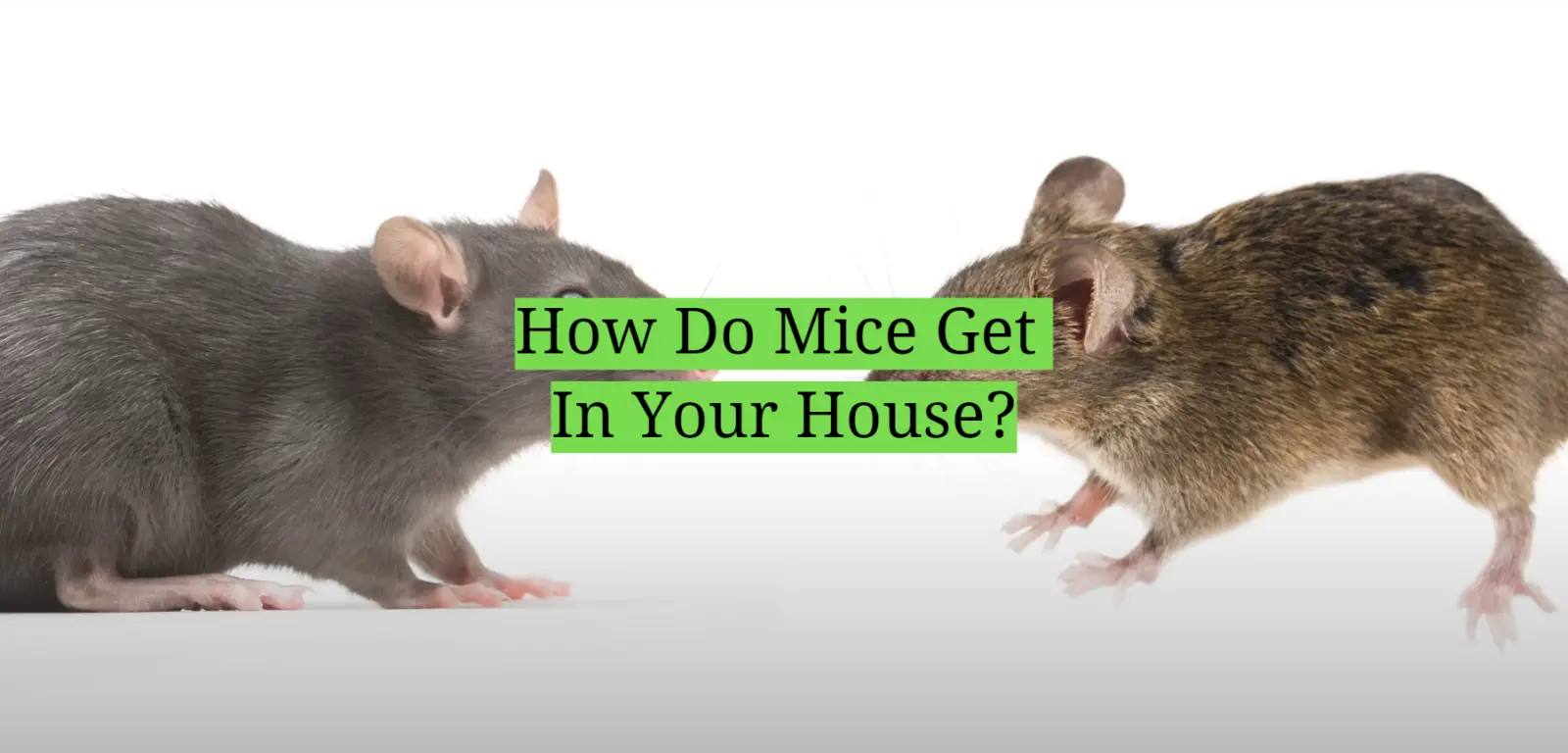








Leave a Reply